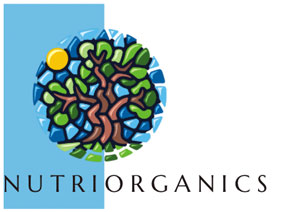There are 3 broad classes of enzymes in the body:
- Metabolic enzymes - These enzymes are responsible for cellular activity and involved in energy production and body detoxification.
- Food enzymes - Whole foods (such as fruit, vegetables and herbs etc) naturally contain enzymes that help the body to break them down during the process of digestion. However, these delicate externally-sourced enzymes are easily destroyed by heat, which is why it is important to incorporate plenty of fresh, natural raw food into your daily diet, or to take a digestive enzymes supplement.
- Digestive enzymes - The body also manufactures its own digestive enzymes, to assist in the digestion of (for example) fats, proteins and carbohydrates. Clearly, when there is a sufficient supply of enzymes from the foods (or supplements) in our diet, there is less pressure on the body to produce its own enzymes. By contrast, a diet high in unnatural, refined and processed foods will contain few (if any) enzymes, and the body will then have to rely entirely on its own finite digestive enzyme reserves.
While enzymes don't change or get consumed while they are being used by the body, life would not be possible without them - essential reactions would happen very slowly or not at all.
Digestive enzymes and nutrients - a natural partnership
Food is basically just a mixture of chemicals, which are broken down by these clever enzymes so that our bodies can use them as fuel. Vitamins, minerals and other nutrients cannot work in the body by themselves; they require enzymes to transport them and make use of them.
Interestingly, the opposite is also true - particular enzymes need certain vitamins and minerals (known as co-factors) in order to function. Magnesium, for instance, participates in over 300 different enzyme reactions.
The importance of digestive enzymes, in particular, in terms of nutrition, is the fact that the human body cannot absorb nutrients from food unless digestive enzymes have first broken them down. The partnership that exists between enzymes and nutrients is therefore one that is central to health, vitality and well-being.
Making digestive enzymes
Digestive enzymes are secreted:
- as saliva in the mouth
- by the stomach lining
- by the pancreas, as pancreatic juice
- and by the lining of the small intestine,at different stages of the digestive process.
Bearing this in mind, it is easy to see how any digestive disorders (including inflammation in the gut or colon) could affect the efficiency of digestion.
What's more, as the body ages, it progressively loses its ability to produce its own enzymes, thereby relying ever more heavily on external sources. At the beginning, it may not be very noticeable, but as time goes on you may start to feel that you are no longer able to tolerate foods that you once did.
Digestive enzymes are also in finite supply in the body. As such, with all these factors taken together, if your body has to rely too much on its own enzyme production, stress is placed on your digestive system and energy resources are diverted away from other important jobs, such as rebuilding and replacing damaged cells and tissue, and keeping your immune system strong.
Enzyme deficiencies may also therefore be accompanied by feelings of lethargy and reduced stamina.
It is also worth noting that, if you are:
- run down
- under stress
- living in an extreme climate
- pregnant
- frequent traveller
High levels of extra enzymes will be required by the body.
As our entire system functions through enzymatic action, it is widely recommended to supplement your enzyme intake.

